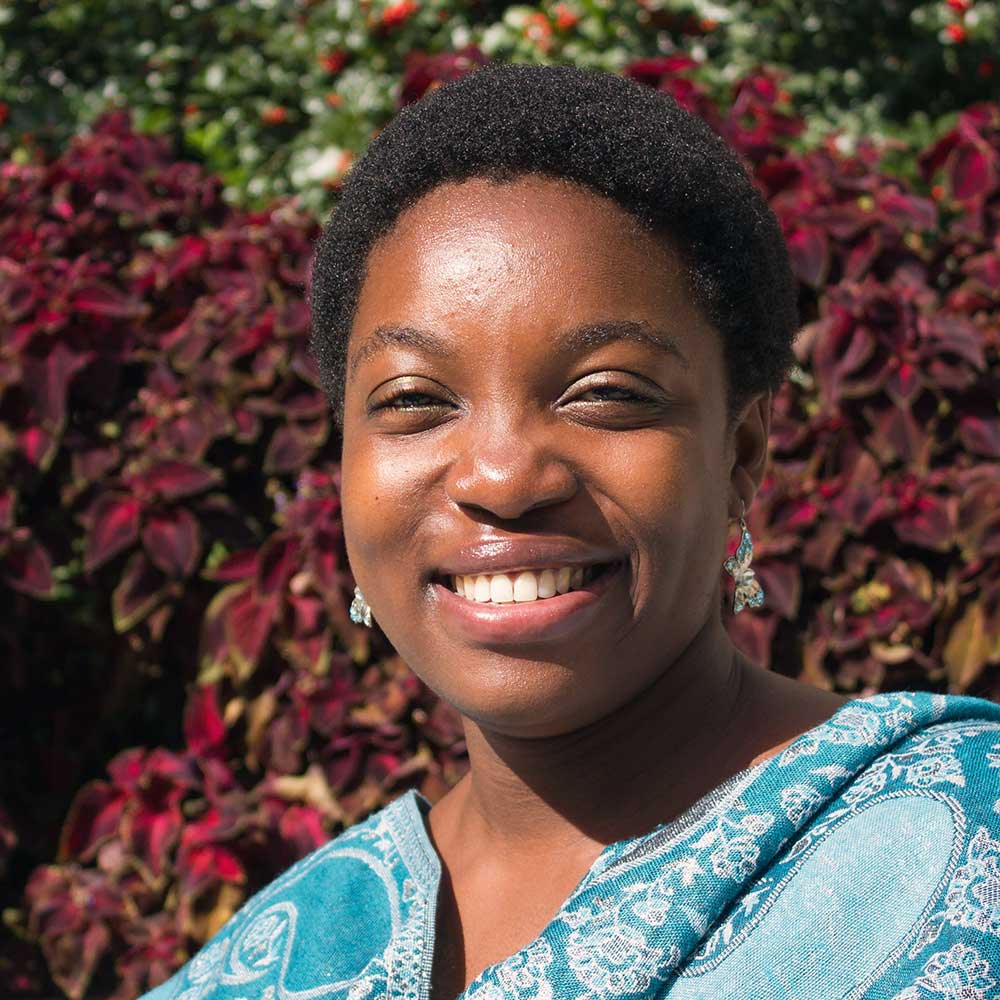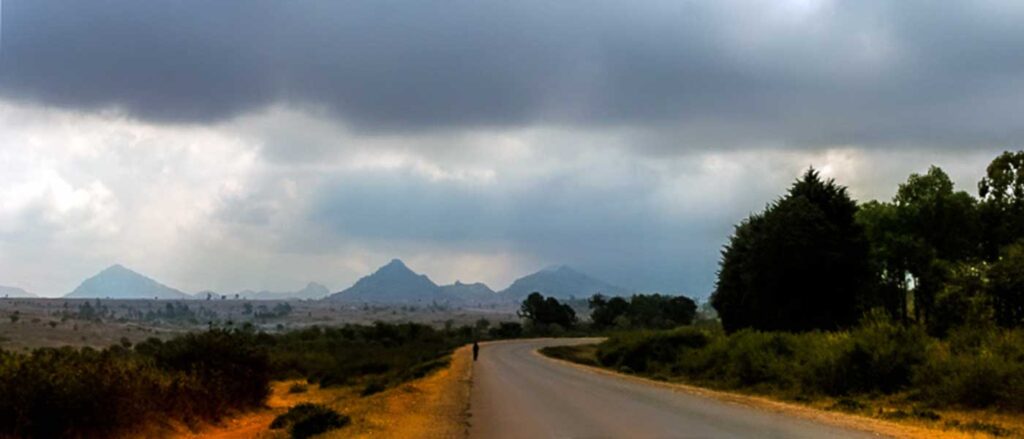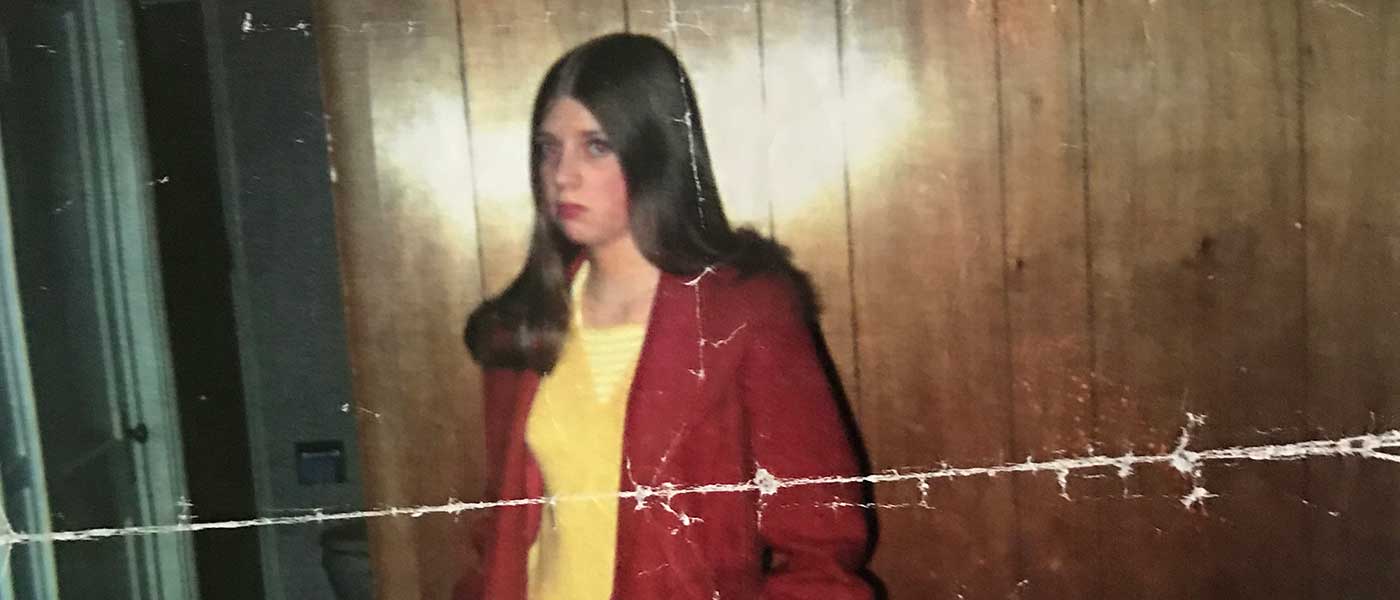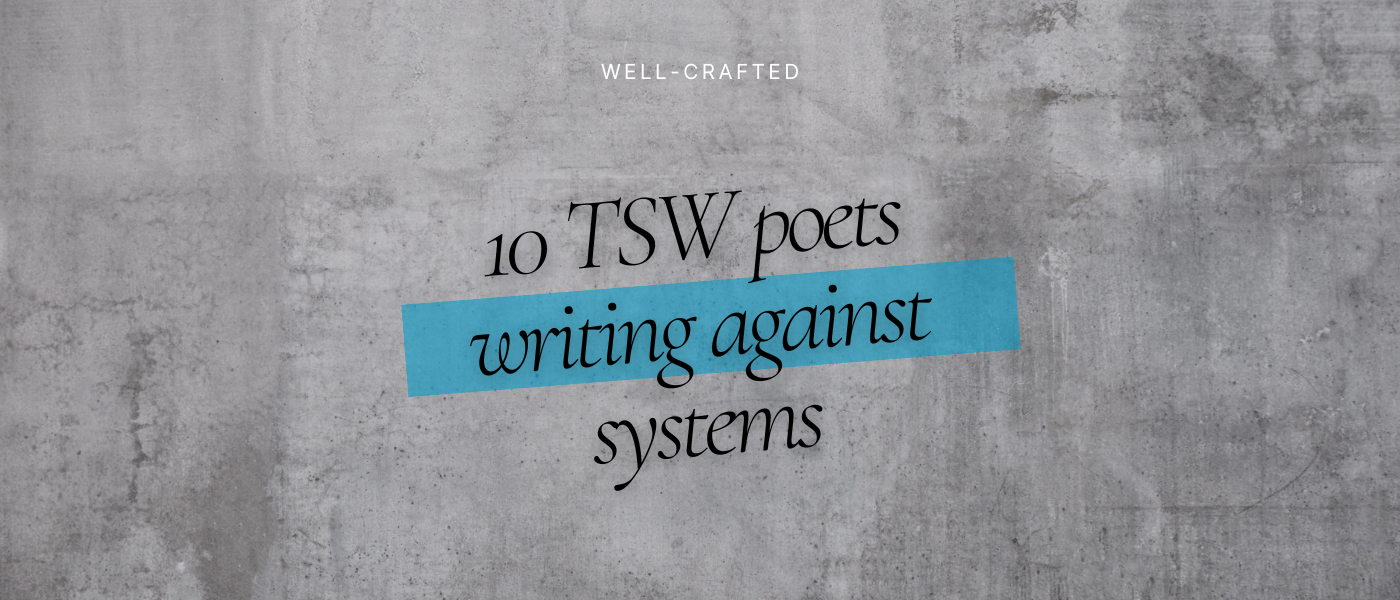“The car is hemorrhaging fuel,” I told Dad over the phone as we approached Grandma and Grandpa’s place.
When my mother, my sister, two cousins and I had first set off in the Toyota Sienna early that afternoon — a beige eight-seater minivan, with plenty of space for the house supplies we regularly brought home to Dad’s parents on trips like this — the fuel gauge had shown the fuel tank to be full. That was more than enough petrol for a round-trip to Mtakataka, his parents’ township, located two and a half hours north of Blantyre. But instead the fuel gauge had rapidly descended over our drive, with us having no clue as to where the fuel was going as the gauge continued to drop — the car didn’t smell like petrol was leaking, and we’d stopped mid-way to check the van’s undercarriage just to be sure. As we pulled into Grandma and Grandpa’s compound, the red arrow on the fuel gauge hovered a precipitous half-millimeter above the E, and there was no way we were going to make it all the way back to Blantyre if indeed the tank was as empty as the gauge said it was.
“Okay,” Dad said quietly. “I’ll see what I can do.” He said this tersely as he hung up. I knew he’d ask us later why we hadn’t done a full check of the car before setting off as he’d always told us to do before long trips — Your failure to plan is not my emergency, he often quipped — but this was something we couldn’t have predicted, even if we had checked, and I found myself annoyed at the edge in his voice.
At the time, Malawi was in the midst of a nationwide fuel crisis because of a foreign exchange shortage — petrol companies couldn’t purchase and ship fuel inland from Mozambique’s port city of Beira, because that required dollars and Malawi had none. If one was driving around, however, it meant one either had fuel or had access to it, and so the risk of being hijacked for that reason was high. There had also been a rash of people killed by hyenas in the area surrounding the Dedza mountains since the beginning of the rainy season in November; no one knew why that was happening, as hyenas don’t normally cross over into places where people have long settled. In retrospect it wasn’t just Dad — everyone, and everything, seemed to be on edge.
The sun had just set when we saw Dad’s headlights illuminating the compound’s gate. It was nearly three hours after we had first arrived. Especially because of the elevated hijacking risk then he really didn’t like driving at night, and I knew that since Dad had arrived at sunset it wouldn’t be long before we left again. It was barely 15 minutes after he’d arrived — greeting his parents and sitting awkwardly in the stuffed armchair they always reserved for him in their living room, not saying very much in their clipped conversation except to discuss how various relatives were doing — before Dad stood up again.
“I think it’s time we got on the road,” Dad told his parents in Chichewa. His mother had never learned English, and his father had stopped speaking English once he retired, and didn’t have to anymore.
“Ayi ndithu, kwada,” my grandmother replied, in a quiet and resigned voice. It’s become dark. “You don’t want to drive with the kids at night.”
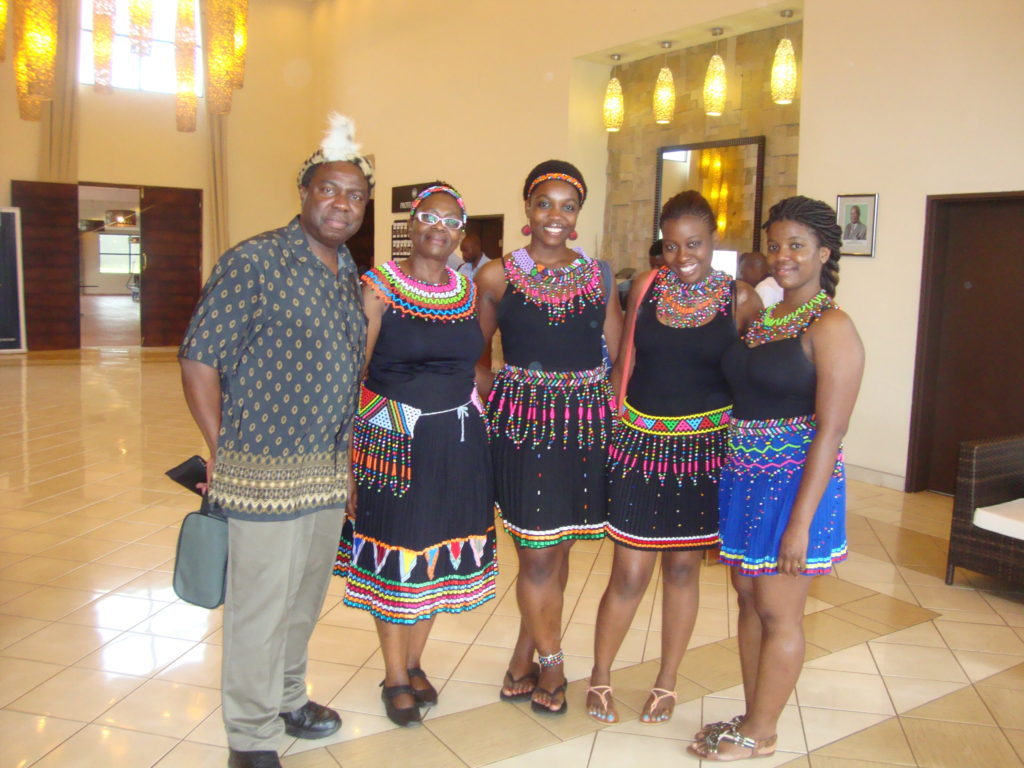
We all walked outside, the air completely silent except for the sound of crickets in the grass. Dad’s car — a sleek maroon Mercedes E350 he’d bought two years earlier, his new favorite toy that almost no one else was allowed to drive — gleamed under the security lights next to the front porch. He’d brought a jerry can of petrol with him, and his father’s home aide — who he’d hired himself, despite his father’s protestations — had already loaded the spare fuel into the minivan by the time we all made our way outside. Minus the person actually driving the car the Benz could only seat an additional three people, as Dad had customized the area that would have been a middle seat in other cars to instead hold a CD compartment and two cup holders. With there being six of us that night I knew that at least one of us would have to accompany whoever would have to drive the minivan back to Blantyre.
“So, who’s going in the Benz?” Dad asked us. Nobody wanted to look like the wimp who first volunteered themselves to be a passenger in the Benz. Furthermore we all knew, with Dad, that being the first to volunteer oneself for a luxury like that was a surefire way to end up designated as the holder of the short straw. No one said anything.
“Well, here’s my thinking,” Dad started. “I’ll drive the minivan.” One. “So your mother has to drive the Benz, since she’s the only one who knows how.”
Two. Dad missed my sister rolling her eyes next to me; Mom was the only one who knew how to drive it because she was the only one he ever allowed to drive it outside of himself and his driver, though my sister had been asking for permission for months.
“Nane, I understand you have a hair appointment tomorrow, so you can go with your mother.”
Three. My sister twiddled her fingers at me as she raced to her favorite seat in the car, the left seat in the back.
“Emma, I understand you have a doctor’s appointment tomorrow, so you can go with Mom too.”
Four. Emma threw her hands up in a Hallelujah sign, as she walked toward the car.
It was now down to me and Alex; we shook our heads at each other and smirked, each of us trying to act like we didn’t care who won the final seat in the car.
“Alex: you go with Mom.” Dad grinned. “Just in case a man is needed to fight the night monsters.”
Five. Alex threw a sideways peace sign in my direction before striding over to the front passenger seat of the car.
“So, Mimi, you’re coming with me, then!” Six. Dad sounded almost triumphant, and I wondered if it had been his plan the whole time for me to join him, Before I had the chance to react, though, he continued on. “Can you guys move the stuff from the Benz into the minivan?”
Dad had brought with him two crates of beer, some blankets, an overnight bag, and an assortment of fruit, in addition to his office papers and sports coat. Failing to prepare is preparing to fail, he regularly declared, usually right as one of us was headed out the door on some errand, in case we got funny ideas about calling him if we got in trouble. Except with this random assortment of supplies I had no idea what he was preparing for. Dad wasn’t really a beer drinker, and while I liked beer I almost never drank it in Dad’s presence. As we said goodbye to the others my body had become a hive of nerves, and my mind was in overdrive — none of what was happening aligned with who I knew Dad to be.
Dad and I had just had a confrontation a couple of weeks earlier on our way back from the Ngoni Harvest Festival in eastern Zambia. At dinner the night after the festival, in a point-blank lecture to us between the main meal and dessert, Dad informed us that he thought us kids had been wasting his money for the last couple of years, buying nice clothes and going on shopping trips instead of being focused on the directions of our lives. Dad often did this — throwing big statements like that into a conversational ring and then waiting intently for the fallout — but with it being decidedly personal this time I immediately recoiled.
“But, Dad,” I countered quietly, “The nice clothes you’re talking about are clothes you literally told us to buy, in Johannesburg, with shopping money we never asked for, on a trip you planned for us.” I started crying then, partly out of indignation, partly because until then I had never openly conflicted with my parents and the stress of it was overwhelming. I could see that Dad was taken aback, and he softened his voice a little.
“I’m just saying that you all seem to like some really nice things.” He emphasized ‘really’ with a slight flick of his wrists outward. “And I don’t think that that’s sustainable for the courses of your lives, per what you have all told me what you want to do. That’s all.” Mom hummed her agreement with him, and I glowered at her internally — she had accompanied us on that trip to Johannesburg, and herself shopped so much that she had to buy an entirely new suitcase for her purchases.
“But you and Mom are always telling us to be conscious of who we are in Malawi, especially in how we dress,” I said, tears still seeping out of my eyes. “It doesn’t then make sense to be mad at us for finally doing just that.” Dad didn’t say anything, so I continued. “I work really hard to do everything you and Mom ask of me, even when it’s not always what I want to do. It feels like you don’t appreciate it, and that no matter what I do you both find a way to say I’m doing it wrong. And I’m tired.”
“There’s no need to be, Mimi,” Dad said, now erasing the accusatory tone entirely from his voice. “We just want the best for you kids.”
“Well, it doesn’t feel that way,” I said, wiping my eyes.
Our subsequent discussion ended up taking up the remainder of the meal and then some. We had never talked that way in our house — conflict of any kind was treated as a betrayal of the family order, and so all we ever talked about openly were conflict-free topics like the news and politics. The kind of conversation we had in Zambia, then, where we calmly laid out our disagreements and gave each other multiple opportunities to speak, had never happened before. I think it stunned all of us. The whole family had been stepping gingerly around each other and around Dad in particular since we got back from Zambia, wondering if he would change how he acted towards us based on that conversation or not, and equivalently wondering just how he would change if he did. I was nervous about being alone in a car with Dad, then, because I didn’t know if he might still be as out of sorts as the rest of us were after that conversation, but I didn’t have a choice about being in that car. And so I simply waited.
As we slowly progressed toward Blantyre, Dad talked to me about what was actually going on with the fuel crisis. With all the work he did with the government, he had inside knowledge on the break points in the system, and why the country was suddenly so short on foreign exchange. He showed me that the flashing lights along the roadside and in the hills were not porch lights buzzing on and off with the electricity cuts, but all the black market fuel sellers rapidly advertising their locations to passersby. The President had in the previous week made black market fuel sales illegal, and so black market sellers could no longer hang empty jerry cans from makeshift flagpoles at the side of the road to signal petrol availability; they had to, instead, be constantly on the move in the dark, so as not to get nabbed and spirited off to jail, or worse.
We ended up needing those flashing lights. Despite the full fuel can Dad had brought with him to Mtakataka, it wasn’t enough — the fuel gauge dropped precipitously again, and Dad realized we’d have to stop for fuel soon or risk getting stuck in the car in hyena country overnight. He pulled up to the roadside in a small commercial area, and several men with dust-smeared fuel cans immediately ran up to the car. Dad got out, still wearing his neck pillow, and, bringing a flashlight with him, went to choose one of the sellers. He chose a quieter man at the back of the crowd — whether for roadside markets or formal business deals, Dad always chose the people who didn’t harass him at first. The people who need the most help are not the ones talking loudest, he insisted. I later overheard him, in Chichewa, with the man he’d bought the fuel from, saying something like, “If the fuel is watered down…” and ending with “die.” The group laughed. My Chichewa wasn’t good enough to discern completely what he’d said, and I made a point to follow up with him about it once he got back into the car.
“Did you tell the man that if they gave you watered down fuel we’d die?” I’d heard stories of people’s fuel tanks exploding from having refueled with water-contaminated petrol off the black market, and thought maybe he’d reminded them to give him the real deal.
“No — I told him that if the fuel is watered down, my people live here in these mountains, and I’d send them here to ensure he dies.” Dad laughed as he started the car and we drove off, and I couldn’t help laughing, too, though I suppose it really wasn’t that funny. I knew who my relatives on my Dad’s side were — their history, going back generations, is pocked all over with poisonings and other suspicious deaths — and while I doubted they’d actually kill this man if anything happened to us, I also knew that Dad never said anything that he didn’t believe to be backed up by most of the facts behind him. Just before we set off, Dad turned to me. “Do you want a beer?”
I wondered if it was a trap — I never drank beer in front of Dad, and he knew that. But he sounded genuine, and I really did want one.
“Sure, Dad.” He reached toward the back of the car, plucked out a Carlsberg Green from the crate, and popped the top off for me. I mumbled an awkward “thanks” as I took a sip, then turned to stare out the window at the shadowy vegetation flashing by the car, as we continued to make our way slowly home.
I can’t remember the exact details of what we talked about over the drive. Politics, almost certainly; Malawi’s President had started in on a rash of authoritarian edicts that had quickly choked the country to a halt, and it was all anyone could talk about. We might have also talked about the weather, as even though it was still the rainy season the rains had been far heavier that month than they should have been.
What I am certain we didn’t talk about, though, was the family’s Zambia disagreement. He never even referenced it offhand, not even slightly. In the absence of another Zambia-like conversational bomb dropped halfway between the two main police roadblocks on that long road, this was the other ambush I had been expecting, and indeed had been anxious about since we first set off. But it never came.
Our conversation ended up, in fact, turning out to be the complete opposite. I remember not only that we both seemed to enjoy the conversation, however surface-level it was, but that it also felt intimate, a feeling that Dad and I almost never experienced with each other. We had love, a lot of it; we just didn’t have many moments for us to develop a unique relationship that was just us, and not about the family and what it needed, or something that was being triangulated through Mom. I remember it being one of the rare times when Dad seemed to let his guard down a bit about needing to seem like he had everything together and all figured out. I remember, too, that I got the chance to talk on this trip more than I normally did in conversations with him; I remember how great it felt to have him listen to me and to be genuinely interested in my thoughts and opinions, and for a person who was so accustomed to holding court with everyone around him it was a rare moment for which he let someone else have an equivalent conversational center stage.
Before that drive, the Zambia trip had felt like a kind of rupture in our relationship; I’d never openly challenged him before, maybe in emails when I was particularly angry but never in person. In countering him in the first place that night in Zambia, though, I’d changed the framework of our relationship, and if there was anything I knew Dad hated it was for his environment, whether literal or emotional, to change without him being in control of it.
But in retrospect I think that the Zambia trip was not a rupture but an opening — a place for us to see that we could survive a change in our relationship dynamic. Perhaps for us to see each other more clearly, too — that I was his daughter but I was also a real person, and that he was my Dad, but he was a real person, too. That I could drink beer in front of him and still be a whole human worthy of respect, and he could accept the vulnerability of not having all the answers in front of me, and still get my respect, too.
Some kilometers past the second police roadblock on that road, something suddenly and loudly smacked the left side of the van. Dad swerved slightly in the road from the impact, but regained control of the car, and we continued going.
“I wonder what that was?” Dad asked this in a tone as jovial as if he were asking what the weather was going to be like tomorrow. “Maybe I should go check the side of the van for damage.”
“I thought you said there are hyenas around here?” I didn’t want to mention the other problem, hijackers; they were known to set up piles of rocks in the middle of the highway that would smack the targeted vehicle as it sped over the pile, and then the hijackers would follow the vehicle until it came to its predictable stop. I knew Dad must be thinking about it even if he didn’t name the threat aloud; fifteen years prior his car had been hijacked at gunpoint on a night as late and dark as this, when he had also been returning home from his parents’ village. He almost never talked about that night, perhaps because of the pain associated with it, both literal and emotional, but also perhaps because understood he’d been fortunate to survive it. We’d known of other people — like my middle school guidance counselor and her husband — who didn’t get to walk away from their hijackings. I didn’t want to be the one to suggest that that was a possibility here.
“Yes, there are.” Dad drove some distance ahead, slowed onto the shoulder of the road and stopped. “But I won’t take long — just need to check the car to be sure we’re okay.” He put on the hazard lights and got out. As soon as he opened the door a terrible smell flooded the car, and I knew right away that there indeed must be hyenas around — both because hyenas are notoriously bad-smelling, and because hyenas are known to scavenge other animals’ earlier kills, and carrion was the only other thing likely to smell that bad in these parts.
Dad was unfazed, though. Still wearing his neck pillow, he walked around the car slowly with his flashlight, inspecting the sides and gently kicking each tire to make sure none of them had blown. Mom’s going to be so mad if Dad gets eaten by a hyena because he had to check the car at night, I thought to myself, trying to make myself laugh even though I was anxious. Nothing happened, though, and Dad simply got back into the car and flipped off the hazard lights, satisfied that nothing was imminently wrong.
“Another beer?” he asked as he pressed the button to lock the car doors. I stared at him for a long moment, before realizing we weren’t going to talk about this either — the fact that he’d just gotten out of the car at night in the middle of hyena country — and shrugged.
“Why all the beer, Dad?” I finally asked, as he reached into the back for another bottle, handing it to me after popping the top off with a bottle opener in the side door.
“That’s just in case we get stuck and I need a few young guys to watch the car while we sleep,” he said, gesturing toward the crates in the back with his left hand. “I give them a crate of beer to enjoy themselves with, and promise them one thousand kwacha per person to stay by the car for the night. I pay them half of the money, and then promise the other half if they’re still there in the morning.” Dad smiled, teeth flashing in the backlight from the car’s headlamps. “They won’t go anywhere.” I grinned in the dark. That’s capitalism, Mimi, he might have said later, though I can’t remember that now.
By the time we got to Balaka — still another hour and a half from Blantyre — Dad had to finally admit that there was something wrong with the gas tank that even he couldn’t figure out, and he called someone from BP Malawi, another one of his subsidiary companies, to meet us at the BP station in Balaka with a jerry can of fuel to top up our failing gas tank. While we’d been lucky with the one black market fuel stop we had made, he didn’t want to risk our chances again. I knew that as a rule he felt like just because he could make that phone call didn’t mean he should do it, not when the rest of the country was starved for petrol — the previous week he’d even pushed his car, alongside our two gardeners and in the pouring rain, from our house to the fuel station half a kilometer away, intent upon staying consistent with that principle.
But in the car from Mtakataka that night he was no longer just the man that he was to Malawi, former minister, public and frequently polarizing figure with a powerful name and societal machinery behind him. He was simply my father, and I, the person sitting beside him in the passenger seat of this hemorrhaging car, his firstborn daughter. Whether by crimes of omission or crimes of commission, it’s your fault, was another one of his many mantras, and more than maintaining his principles, I believe now that he must have decided he simply needed to get me home safely and with reliable fuel in the car. If anything had happened to me, Mom would have had a lot more to be mad at him for than him getting eaten by a hyena — but even more importantly, if anything had happened to me he never would have been able to forgive himself.
I called Mom while the car was being filled up.
“Are you guys okay?” Mom sounded anxious: she, my sister, and cousins had arrived home over an hour earlier. I cast a glance at Dad at the other side of the station lot; he was talking jovially with the BP official who’d met us at the Balaka station, smiling and gesticulating, as though we were on any other trip.
“Yes, Mom — we’re fine.” I finished my beer while she continued talking; I could hear my sister and two cousins snickering in the background, not only long safely home, but probably also at least a few Carlbergs into the night themselves, before Mom annoyedly hushed them and audibly pattered down the hall away from the kitchen.
“Are you sure? How is your father?” Mom knew that uncertainty and the feeling of not being in control in particular could be destabilizing for Dad. I looked back over at him just then, and noticed him slipping the attendant a small bundle of cash — likely the money he would have paid off the hypothetical young men who would have watched the car if we’d been stuck by the roadside overnight.
“He’s fine, Mom.” I didn’t tell her everything, about how he was more than fine and why I knew that; I didn’t want to run down the phone battery, but I think I also just wanted to keep the night for myself, in a world where I didn’t get many moments that were just myself and Dad, and certainly not close moments like these. Afterward, I would preserve one of the bottle tops from one of my beer bottles in my wallet and carry it with me everywhere; when that wallet was stolen from my purse at a bar eight months later in Philadelphia, it was the lost bottlecap that I was most upset about — not the cash, credit cards, or IDs that I’d have to begin painstakingly replacing. Dad would have said that the memory was all that mattered, that things were just things; it’s another thing I would have disagreed with him about, but I think we’d have survived that, too.
As Dad shook the BP official’s hand and began heading back toward the car.I paused for a second, then I decided to open up a little more, to say enough so that she could trust that what I was telling her was real. “We’re more than fine, Mom.” I smiled at Dad as he opened the drivers’ side door. “We’re doing pretty great.”
